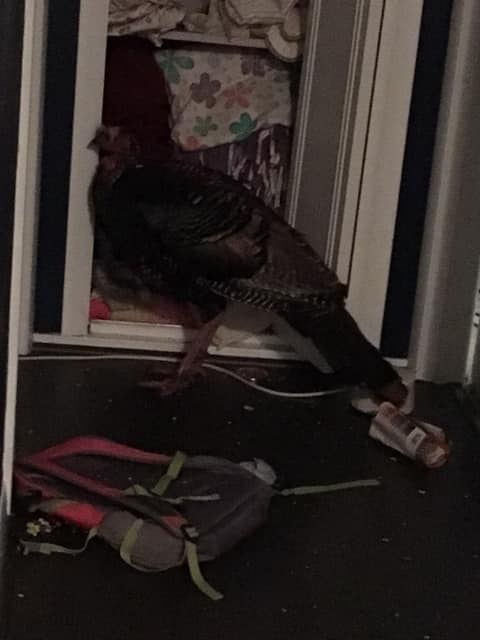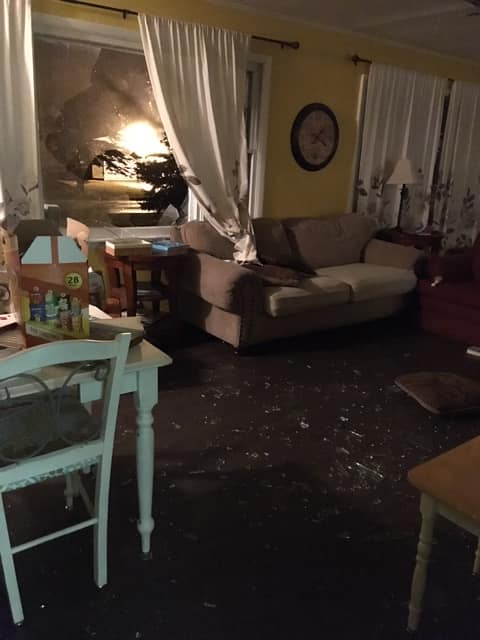|
In preparation of my new book that I will be releasing in the coming year, I am doing something new with my blog/website. The book, The Society of the Watchers, is a novel about a small village called Kilhaven. We know Kilhaven today as Black River, New York. This story takes place over 150 years in the future - in our future. You see, when the beasts came, our world fell. We lost everything to these creatures: technology, electricity, our safety, our country. Disease and war killed much of humanity. The remnant now reside inside walled villages scattered across the country. In the 150 years since our World Went Dark, humanity built new lives inside their villages. Happy lives. Lives willing to defend and die for. The rest you can discover when the book is released.
In the meantime, I want to concentrate on a man who lived during the time the World Went Dark. This man's name is Harvey Gorge, and he was the founder of Kilhaven. He lived during this age, and he documented the fall of our world in a journal. Rumors are that he recorded several journals. This blog will concentrate on Gorge's first and only known journal. So this portion of the blog on my website, for the time being, will close. It will be superceded by Harvey Gorge's journal and his experiences. So stay tuned for Harvey Gorge's first entry.
3 Comments
During this time of quarantine, my wife and I made some short films with my family. I placed the three-part series below. I hope you enjoy! Episode 1 is complete, and the script for episode 2 is finished as well. We begin shooting today. This is a project that we are using for schooling our children at home during this time of quarantine. We also like acting, editing, and the arts. So this has been a win-win for our family. It keeps us busy. We teach them to act, and they are getting a bit of experience of how film is created. So, if you haven't watched the short film, please take a look at it, and we hope you enjoy. The last few years of my family’s life have been stressful. I have written about some of it here, here, and here. A brief summary is as follows: In 2018, my wife was diagnosed with cancer. After several surgeries and innumerable doctor appointments, we moved on with precautionary medicine (Immunotherapy). In 2019, she was hospitalized for nearly a week in an effort to discover what caused her sudden onset of double vision. (Did the cancer return was the question that the doctors wondered.) We found out it was a reaction to her immunotherapy. As soon as we returned home, while we were visiting friends, a turkey flew through our front window and ransacked our house. Yes, you read that right, a turkey flew through our window and ransacked our house. I spent 2-3 hours trying to get that bird out that night. We had one heck of a mess to clean up. By August of that year, too much financial damage had been done (car repairs, cancer, doctor appointments, a rotting bathroom floor, etc…). We had to declare bankruptcy. Yes, the cancer and other burdens of life had caused irreparable financial harm. We spent months struggling through the discouraging and sometimes shameful feelings of bankruptcy. About that time, we also found out we were pregnant with our fifth child. It was a surprise to say the least. She was a gloriously unexpected surprise. What were we going to do with another child? Where were we going to put her? That still is a question that hovers over us. Our house is ridiculously small, and still is. During the pregnancy, Liz was diagnosed with severe ICP (intrahepatic cholestasis of pregnancy). Her liver was not functioning properly and the risk of stillbirth was high. She endured a horrible pregnancy and many sleepless nights that caused so much stress and medical problems that she was considered high risk. We had to deliver at Crouse Hospital in Syracuse. While there, my wife received an epidural. It backfired. Her heart stopped beating. She flatlined. Fortunately, she was revived and the baby was taken out healthy in an emergency C-section. We came home on a Thursday, and on that Saturday, the quarantine of New York began.Through all of this, I finally learned something I always had known. Life is out of my control. That was an extremely scary realization. You realize that anything can happen and you can’t do a thing about it. Your wife can die while undergoing a routine medical procedure. A spot on the face can be cancer. A cough can turn deadly. Though the realization of having no control is scary, it can also be freeing. How, you may ask. Because I have a God who is in control. What does that mean for you or me in “real” life? Well, for me, it means that I will do my best to trust in Him and no longer willingly give in to the fear that has plagued me all my life. Strangely, before 2018, every day was a day I battled fear. I feared everything – every illness, sickness, muscle pain. Secretly, and my wife can attest, my life was devoted to fear. Strangely, however, it wasn’t until after I experienced these horrible, stressful things that this obsession with fear began to subside. This brings us to today - the Age of Corona. I have read countless articles out there and you can see, almost feel, the fear that rages in the outside world. It is panic inducing. And it is in times like these that the real character of people are revealed. I, with the help of God, have committed myself not to give in to the fear. I will not be afraid. I have taken all the necessary measures, even resorting to wearing a mask and gloves while grocery shopping. Yes, I have taken this disease seriously. I don’t go out unnecessarily. I, willingly, as a free man, follow the advice of the government. (I do have a problem with dictates from said government, even dictates for “my own good.” That is another subject.) I respect the opinions of people that are different than mine, but in the end, I must follow the dictates of my own beliefs. This is what frees me. I ask myself, “Do you believe the Bible?” If I do, then I must believe the following: “A man’s days are numbered. You know the number of his months. He cannot live longer than the time You have set.” Job 14:5. So what does that mean? Does that mean that if I forget to scrub my hands with Purell I will drop dead? Does that mean if I pick up the wrong jar of Ragu I will catch this deadly disease? Now your answer may differ than mine, but I say, “No!” It does not mean that. My days have been written down. The hairs of my head have been numbered (Luke 12:7). Now, do I go out and lick doorknobs? No, but does it matter? If I am to die of the Coronavirus, there is little I can do (Acts 26:14). If I am to die in a car accident, to whom can I protest? I can wear a seatbelt or never drive again. Those are my options - the difference between taking a precaution and living in fear. Precaution says, “Wear a seatbelt.” Fear says, “Don’t you dare drive.” I will do what I can to protect myself from a car accident, but that does not mean I will never drive again. The same goes with the coronavirus. I must acknowledge that God is in control, and I will not give into fear. I cannot give into it. I have lived there for so long and it is a dark, dark world. I cannot, nor will not, return. So, yes, life is dangerous. It always has been. It is so dangerous, in fact, that you and I will definitely die one day. There is nothing that can stop that. Stepping out your front door is full of risk, even when there was no Corona to Purell away. What does this all mean? So, while I have taken this virus seriously, I do believe, on the other hand, the world has taken it too seriously. In 2004, an article by David Ropeik was published. It was called “The Consequences of Fear,” and in it, he states, “We must accept that being worried or not worried enough has real health consequences that need to be understood, quantified, and incorporated into risk management.” (I encourage you to read over it. Much of it will seem very familiar to what is happening now.) Speaking from experience, I know the hazards of worrying too much. I see the signs and symptoms of it. My body has experienced it. That is why I believe we, as a country and world, are worrying too much. We are giving in to fear. Never have we shut down our country the way we have the last few months. I can’t even get my cats vaccinated. My wife’s CT scans are delayed. We are ignoring known diseases over the fear of an unknown one. We are ignoring diseases of considerably higher death rates over one that is considerably lower. Real medical issues are being brushed away all because fear has taken over the world. This is much deeper than precaution. This has devolved into a sort of hysteria. Now, that doesn’t mean that people won’t die or get sick from this virus. They will. Frankly, even I could. But my death or my loved one’s death from this disease wouldn’t change the fact that this is nothing to fear. It wouldn’t change the fact that God is in control. If you are a Christian, you are commanded not to fear. What does that look like for each of us? Now, I don’t write this judgmentally nor to cast aspersions on people. Believe me, I have struggled with fear all my life. I write this, however, in hope and truth. God’s word states, “In his hand is the life of every creature and the breath of all mankind.” Job 12:10. This should comfort you. That is its purpose. Take it from me, fear can be a far more damaging virus. It has the power to take your life and your freedom. |
AudiobookArchives
February 2021
Categories
All
|



